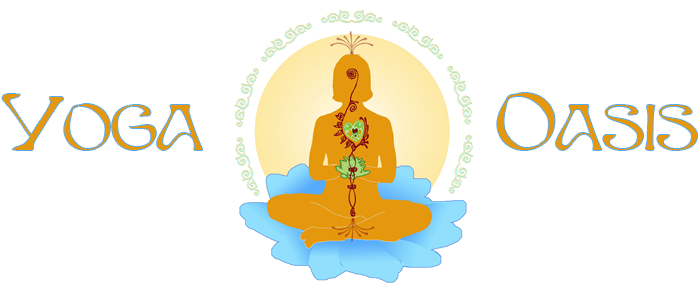 The last three newsletters explored 3 of 5 guidelines to Consistent Meditation: 1. Starting and 2. Keeping the Why Alive and 3. Commit. If you missed them, just click on the highlighted titles to access and read.
The last three newsletters explored 3 of 5 guidelines to Consistent Meditation: 1. Starting and 2. Keeping the Why Alive and 3. Commit. If you missed them, just click on the highlighted titles to access and read.
What primarily prevents us from meditating consistently are repetitive thoughts that ultimately pull one away from starting, affirming the benefits, and/or committing. Even when you have mastered some of these, maintaining the practice can be challenging. So the next option to ‘Stay the Course’, is #4 Key Guideline in Maintaining a Meditation Practice – SUPPORT.
Support is essential for staying the course for almost everyone; we are both solitary and communal beings. Expanding your meditation network is a form of public commitment, and a platform that serves others and yourself; all who desire to become more peaceful, conscious and centered.
Here are a few suggestions for support systems that may be of help to you.
- Join a local weekly meditation group.
- Participate in a meditation course.
- Partake in a retreat focusing solely or in part on meditation
- Make a pact with a friend and share your experiences on a regular basis.
- Download an app that provides meditation tools, and links to others.
- Teach Meditation
Now for a little extrapolation for those suggestions:
- Join a local weekly meditation group. You will likely see posters in local coffee shops, co-ops, ‘new age’ book store, etc. They may be held at a yoga studio, church, community space, or someone’s home. There may be a charge or not. The focus may be in alignment with a particular style/lineage of meditation, or a simple secular form, like insight mediation, focused upon watching your breath. Having a group to practice with can really help you settle in more deeply into your own practice. Look around, and try out a few places until you find one that fits. Then commit to it for at least 6 months, going at least once weekly.
- Participate in a course that deepens your understanding of a type of meditation, or the form you are aligned with. Such options arise from time to time at yoga studios, through spiritual houses of worship (it may be aligned with that tradition or a teacher is simply using that space), or through specialized retreat centers, like the Shambala Mountain Retreat Center in Colorado. A course will help the mental body, your mind, to understand and connect the reasons for practice and how the practices transform you – it will integrate theory and practice so your mind is less likely to resist the temptation to just drop the ball. It will affirm your commitment.
- Partake in a retreat focusing solely or in part on meditation. Similar to #2 above, but more focused on self-care in the larger sense; remove yourself from technology and your daily rhythm. Start with a day, a weekend, or go for the gusto and dive in for a week or more. It may be a retreat focused upon meditating for longer, or variations of meditation within a particular lineage, or combined with yoga, art/creativity, walking or many other modalities / methods of integrating body, heart, mind and spirit. Very likely, it will transform you and your practice. It will help you choose a balance of self-care practices (including mediation), on a daily basis.
- Make a pact with a friend with whom you share your experiences on a regular basis. This may be the route for someone who is isolated in where they live, or an introvert, or if you have a demanding schedule, travel a lot, or obligations (like a single parent), that interferes with you participating in local venues at specific times. You and one other confidant can more easily schedule and adapt/shift your meeting time according to what is happening… but still commit to at least once/week. You can come together and sit in meditation and/or meet in a public or private space to share your practices – what you did the week before, what struggles and achievements and insights you had. An additional option for the person with an erratic, demanding schedule is an online community; so ….
- Download a meditation app that links you with folks around the world who are meditating. http://www.insighttimer.com is a free downloadable app that allows you to set (nice sounding) timers, access guided meditations, and make connections with others who are meditating. You are informed as to how many people globally are meditating at any given moment (over 3.5 million users use this app). This can be very powerful tool of connection, and nourishes personal accountability. Once you set it up, it will record the consistency of your practice, which can be a powerful incentive to meditate every day. You begin to look forward to it. You can explore various forms of relaxation and meditation that fit a given mood or need. Your allies are from all over the world, which is a remarkable way to experience one of the most powerful boons of meditation – that we are all connected and of the same star seed quantum energy.
- Teach Meditation – Once you have been meditating for awhile, and especially if you want to dive deeper into the subject and expand the benefits to others, consider teaching a class/course. Just make sure you are teaching what you know, and you have some years of practice, so all has integrity. Make it accessible within your community; you might offer it from your home, at a public space that supports spiritual teachings, or a secular space. You might offer it for free or charge… the idea is to stretch your own abilities and create community yourself in a way that will benefit you and others. You might have a soft spot in your heart for a particular audience that might not normally think or have access to meditation teachings, so you might just bring it to them: youth at risk, single moms, etc. It need not be complex – you are just offering a space for community to practice.
I’ve taught numerous courses and continue to integrate meditation into several of my studio yoga classes; teaching allowed me to introduce a variety of practices into the local community that were secular in nature, therefore accessible to a wide variety of folks. It was also helpful for me to organize and teach about the various meditation techniques out there – so I could help each person find an accessible technique for meditation. The more I learn and teach meditation, the more I ‘Stay the Course’ and contribute to a world that I desire: one wherein consciousness is evolving to a place of greater love, wisdom and peace.
What kind of support would be of value to you in helping you stay the course? What will you do to create community/support to assist your commitment to meditate? Comment below please.
